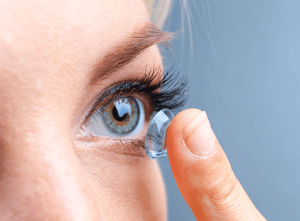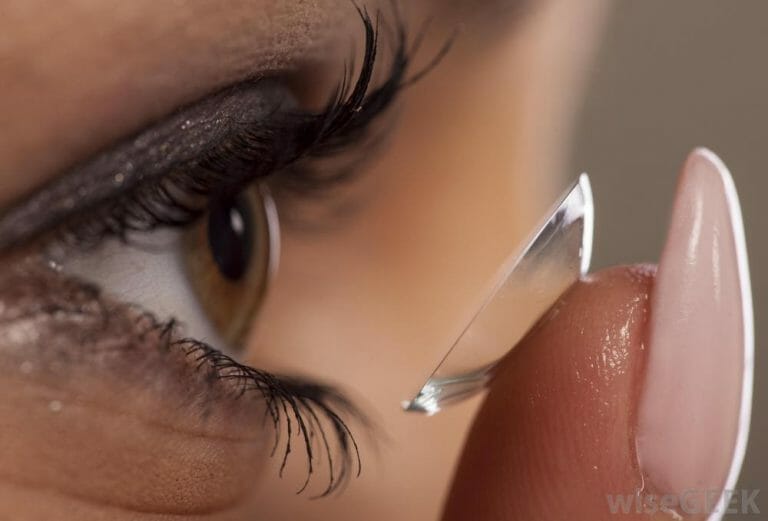Extreme weathers affect the human body; flu in the winter and sunburn in the summer. The wearability of contact lenses is also affected by cold and hot weather which can lead to discomfort of a lens and various infections. Hot weather can expand the contact lenses whereas, cold weather can contract them.
Here are several guidelines to ensure that the weather doesn’t render your contact lenses unwearable.
Tips to protect your contact lenses from hot weather:
-
Don’t fear the heat
 First thing first, you need to stop believing the myth that contact lenses melt in the eyes because of intense heat. However, you should make sure to wear sunglasses from keeping the eyes from hurting.
First thing first, you need to stop believing the myth that contact lenses melt in the eyes because of intense heat. However, you should make sure to wear sunglasses from keeping the eyes from hurting.
-
Stop sweat from getting in the eyes
When the heat gets coupled with humidity in hot weather, it does not take long to work up a sweat without any physical exertion.
Wearing an absorbent headband can prevent the sting of sweat in your eyes. Or you can use a towel to wipe your brows frequently.
-
Protect your eyes from getting in the sun
For those who spend more time outdoors, it is important to protect your eyes from harmful UV rays. You can use contact lenses with UV protection during the summer when you are more likely to spend most of the time outdoors.
Moreover, you should wear polarized sunglasses all the time when you go outside, regardless of the temperature.
-
Don’t wear contacts to bath or swimming pool:
Remember to remove the contacts from your eyes before diving into the pool in your backyard, hotel, or gym. Contacts can cause eye irritation and infection when they make contact with the water. Therefore, you should always remove the contacts before coming close to any water body.
Tips to protect your contacts in cold weather
-
Keep hydrated
We drink less water in winter which does not meet the needs of our body. Therefore, you are recommended to drink plenty of water to keep your body and eyes sufficiently hydrated.
-
Cope with the low humidity
 Humidity normally decreases in the winter and fall season. The eyes are likely to become drier as the tears evaporate. Therefore, artificial tears or compatible eye drops can help help your eyes in this regard. Also, you should use goggles or sunglasses when you go outdoors to prevent your eyes from drying winds.
Humidity normally decreases in the winter and fall season. The eyes are likely to become drier as the tears evaporate. Therefore, artificial tears or compatible eye drops can help help your eyes in this regard. Also, you should use goggles or sunglasses when you go outdoors to prevent your eyes from drying winds.
-
Uses glasses
Substituting the contact lenses for glasses might be a good idea if frigid weather is contributing to any ongoing eye problem. Do consult your doctor before making any such decision.
-
Keep yourself from direct heat
We keep our homes, offices, and vehicles heated in the winter to combat the chilly temperatures.
Whether the heating source is a furnace vent, a radiator, a stove, a fireplace or car vents, it can dry out the eyes evaporating the moisture leading to irritation.
-
Stop believing the myths:
It’s a commonly believed myth that contact lenses can freeze in the eyes. Contacts don’t freeze in the eyes because the temperature of the cornea and the tears keep them warm. However, you should wear goggles or eyeglasses to protect your eyes from harsh winds and harmful UV rays.
To take care of your contacts, it is important that you clean and stores them properly. Always follow the instructions and recommended schedule for replacing the contacts. Take a break from contacts a couple of hours before bedtime to minimize any ongoing weather-related problem.


